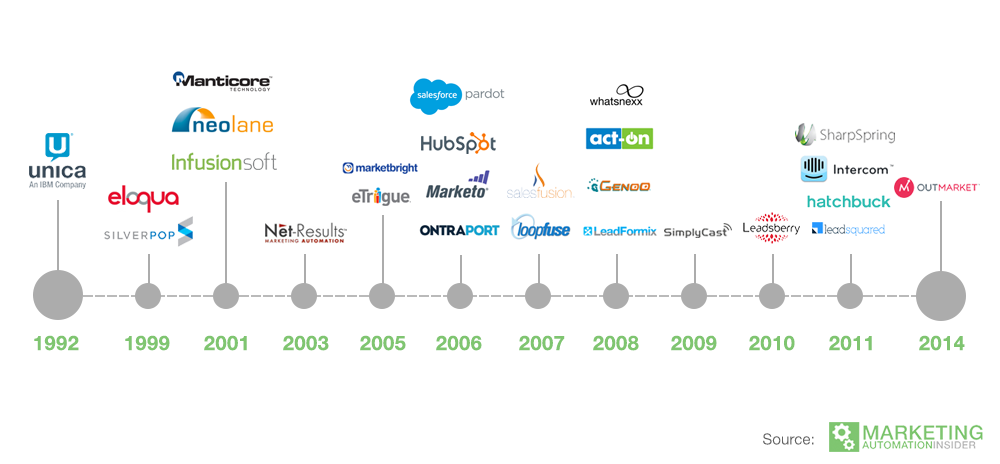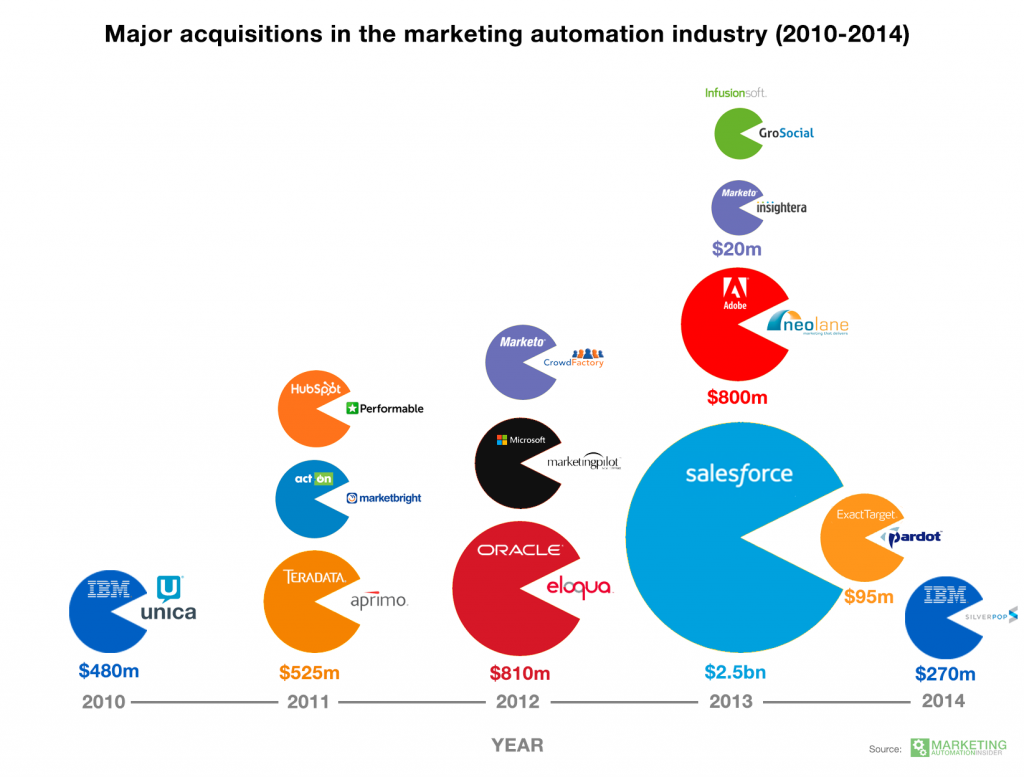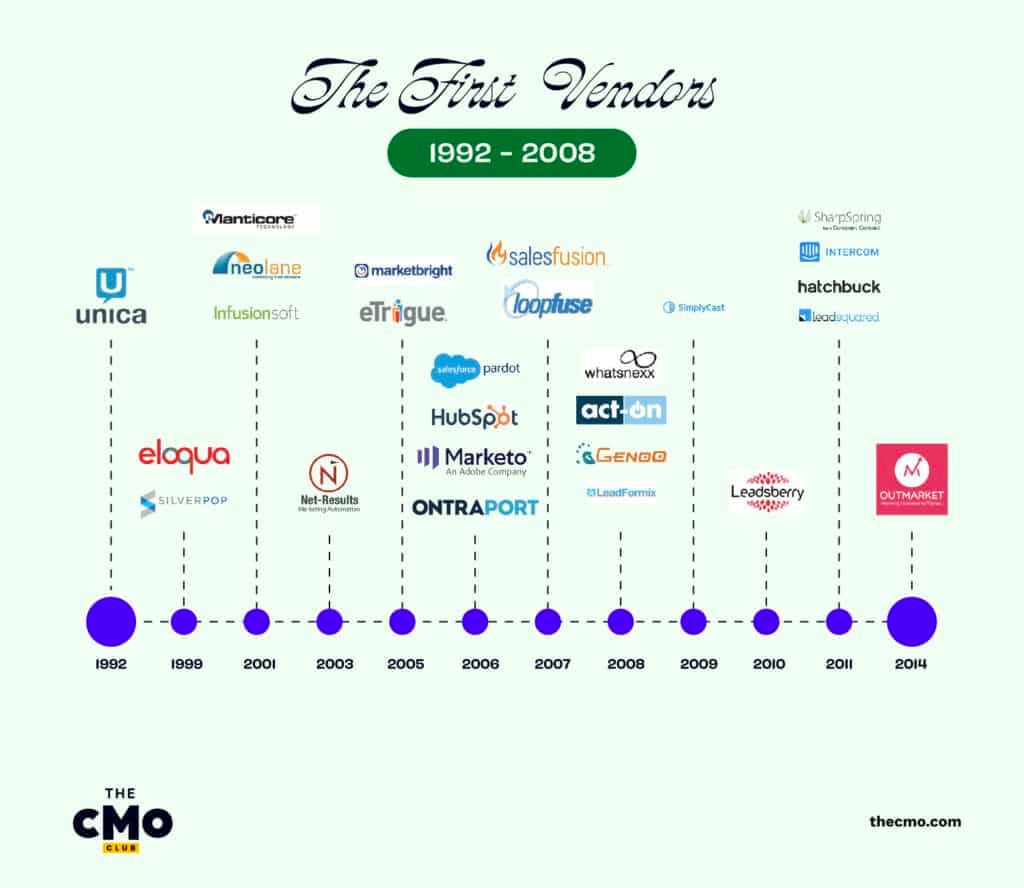The Evolution of Marketing Automation
Marketing automation has undergone significant transformations since its inception, evolving from simple email marketing tools to sophisticated platforms that leverage artificial intelligence (AI) and machine learning (ML). This evolution highlights the need for flexible solutions that can adapt to changing marketing landscapes and technological advancements.
Early Stages of Marketing Automation
- 1980s and Early 1990s: The roots of marketing automation began with database marketing and customer relationship management (CRM) systems. Tools like ACT (Automated Contact Tracking) allowed businesses to digitally manage customer contacts, marking a shift from manual methods.
- Mid-1990s: The first true marketing automation software emerged, with Unica being a pioneering platform. It introduced automated email campaigns and lead nurturing capabilities, setting the stage for future innovations.
Modern Developments
- Late 1990s to 2000s: CRM systems evolved to include marketing automation features like lead scoring and automated workflows. This integration enabled businesses to streamline marketing efforts more effectively.
- 2010s and Beyond: The integration of AI and ML has revolutionized marketing automation. These technologies predict customer behaviors, personalize marketing efforts, and enhance campaign effectiveness.
The Need for Flexible Solutions
As marketing automation continues to evolve, there is a growing need for flexible solutions that can adapt to changing market conditions and technological advancements.
Challenges with Traditional Platforms
- Complexity and Cost: Traditional platforms often have a steep learning curve and high costs, making them less accessible to smaller businesses or those with limited resources.
- Flexibility and Customization: Traditional platforms may lack the flexibility to meet specific industry needs, leading to a demand for niche solutions that offer more customization options.
- Integration Challenges: Integrating traditional platforms with other systems can be complex, highlighting the need for solutions with seamless integration capabilities.
Future Trends
- Predictive Analytics and Customer Insights: The use of big data, AI, and ML to predict customer behaviors and tailor marketing efforts is becoming increasingly important.
- Integration and Interoperability: The future of marketing automation lies in creating interconnected ecosystems where data flows freely between different platforms, enhancing efficiency and customer experience.
In summary, the evolution of marketing automation underscores the importance of flexible solutions that can adapt to technological advancements and changing market needs. As businesses continue to seek more personalized and efficient marketing strategies, the demand for adaptable and integrated marketing automation tools will only grow.




















Maple Ranking offers the highest quality website traffic services in Canada. We provide a variety of traffic services for our clients, including website traffic, desktop traffic, mobile traffic, Google traffic, search traffic, eCommerce traffic, YouTube traffic, and TikTok traffic. Our website boasts a 100% customer satisfaction rate, so you can confidently purchase large amounts of SEO traffic online. For just 720 PHP per month, you can immediately increase website traffic, improve SEO performance, and boost sales!
Having trouble choosing a traffic package? Contact us, and our staff will assist you.
Free consultation